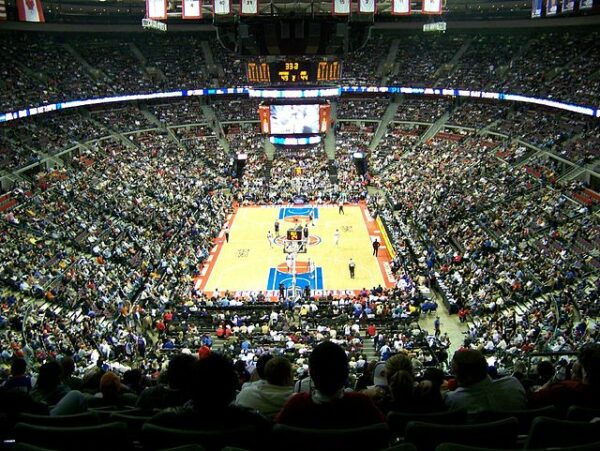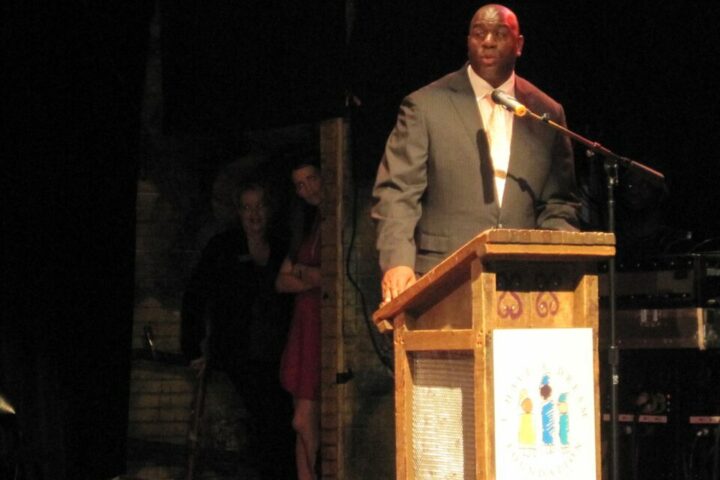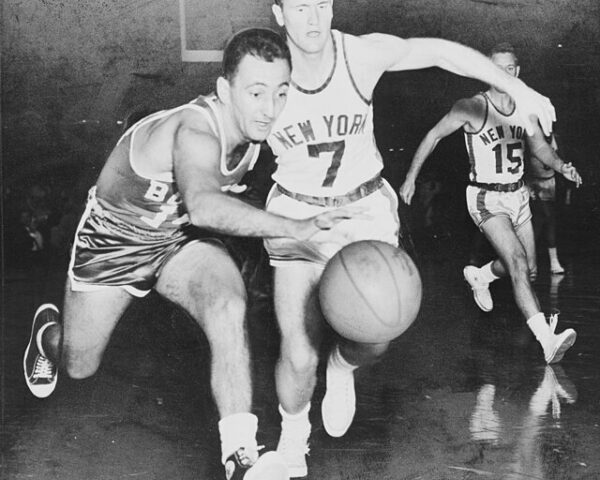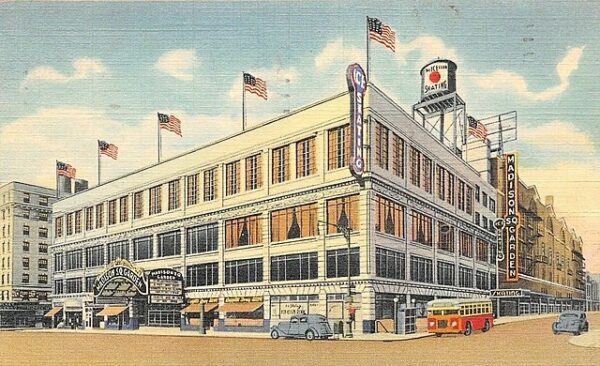On November 19, 2004, one of the most notorious incidents in basketball history unfolded: the “Malice at the Palace.” This infamous brawl, which erupted during a game between the Indiana Pacers and Detroit Pistons at The Palace of Auburn Hills, remains a defining moment in the NBA, remembered for its unprecedented violence and lasting impact on the league.
The game itself was already charged with tension, fueled by a fierce rivalry between the teams. Just a few months earlier, the Pistons had defeated the Pacers in the Eastern Conference Finals on their way to claiming the NBA championship. This early-season matchup carried that intensity onto the court. With under a minute left to play and the Pacers leading comfortably at 97-82, the game seemed to be winding down. However, a hard foul by Pacers forward Ron Artest (now Metta Sandiford-Artest) on Pistons center Ben Wallace ignited tempers. Frustrated, Wallace retaliated by shoving Artest, setting off a heated exchange. While teammates and referees worked to defuse the situation, it appeared the conflict might settle.
THE MALICE AT THE PALACE SUSPENSIONS
Ron Artest: 86
Stephen Jackson: 30
Jermaine O’Neal: 15
Ben Wallace: 6
Reggie Miller: 1
Billups: 1Here’s 6 minutes of raw footagepic.twitter.com/jGXmFABfbH
— Ballislife.com (@Ballislife) November 19, 2024
Then, everything changed. Artest, attempting to distance himself from the scuffle, reclined on the scorer’s table. Suddenly, a fan threw a cup of beer that hit him. In a flash, Artest charged into the stands, mistakenly confronting the wrong person. This action triggered an all-out brawl involving fans and players. Pacers guard Stephen Jackson followed Artest into the crowd, further escalating the chaos. Other players, including Jermaine O’Neal, became involved, as punches were thrown both in the stands and on the court. Some fans stormed the court, clashing with players. Security personnel struggled to regain control, and the game was ultimately abandoned.
The consequences were swift and severe. NBA Commissioner David Stern imposed unprecedented punishments. Ron Artest was suspended for the remainder of the season—a total of 86 games—the longest suspension for an on-court incident in league history. Stephen Jackson received a 30-game suspension, and Jermaine O’Neal was initially suspended for 25 games, later reduced to 15 upon appeal. Ben Wallace received a six-game suspension, and other players faced additional penalties. Altogether, players forfeited over $11 million in salary. Several fans involved in the melee faced criminal charges and were permanently banned from NBA games.
The brawl dealt a major blow to the NBA’s image. Critics lambasted the league. In response, the NBA enacted sweeping reforms. Commissioner Stern introduced stricter security protocols at arenas, including limiting alcohol sales and increasing security staff. A player dress code was also implemented, requiring professional attire to project a more polished image.
Nearly two decades later, the Malice at the Palace remains a watershed moment in sports history. The event has been revisited in documentaries like Netflix’s Untold: Malice at the Palace, which offered fresh perspectives on the incident. These accounts highlighted underlying issues such as mental health struggles faced by players like Artest and the personal toll the event had on their careers and reputations.
The Pistons would go on to lose to the San Antonio Spurs in the NBA Finals later that year.






